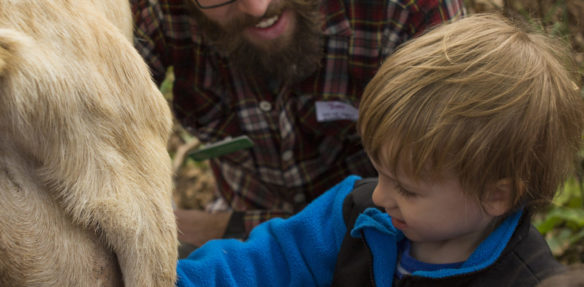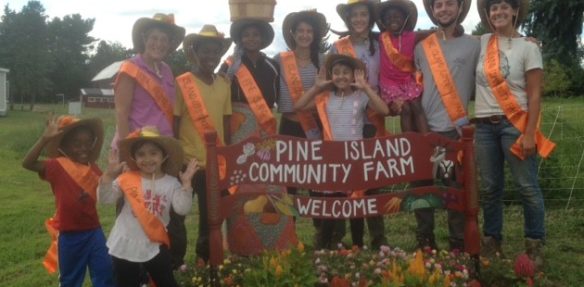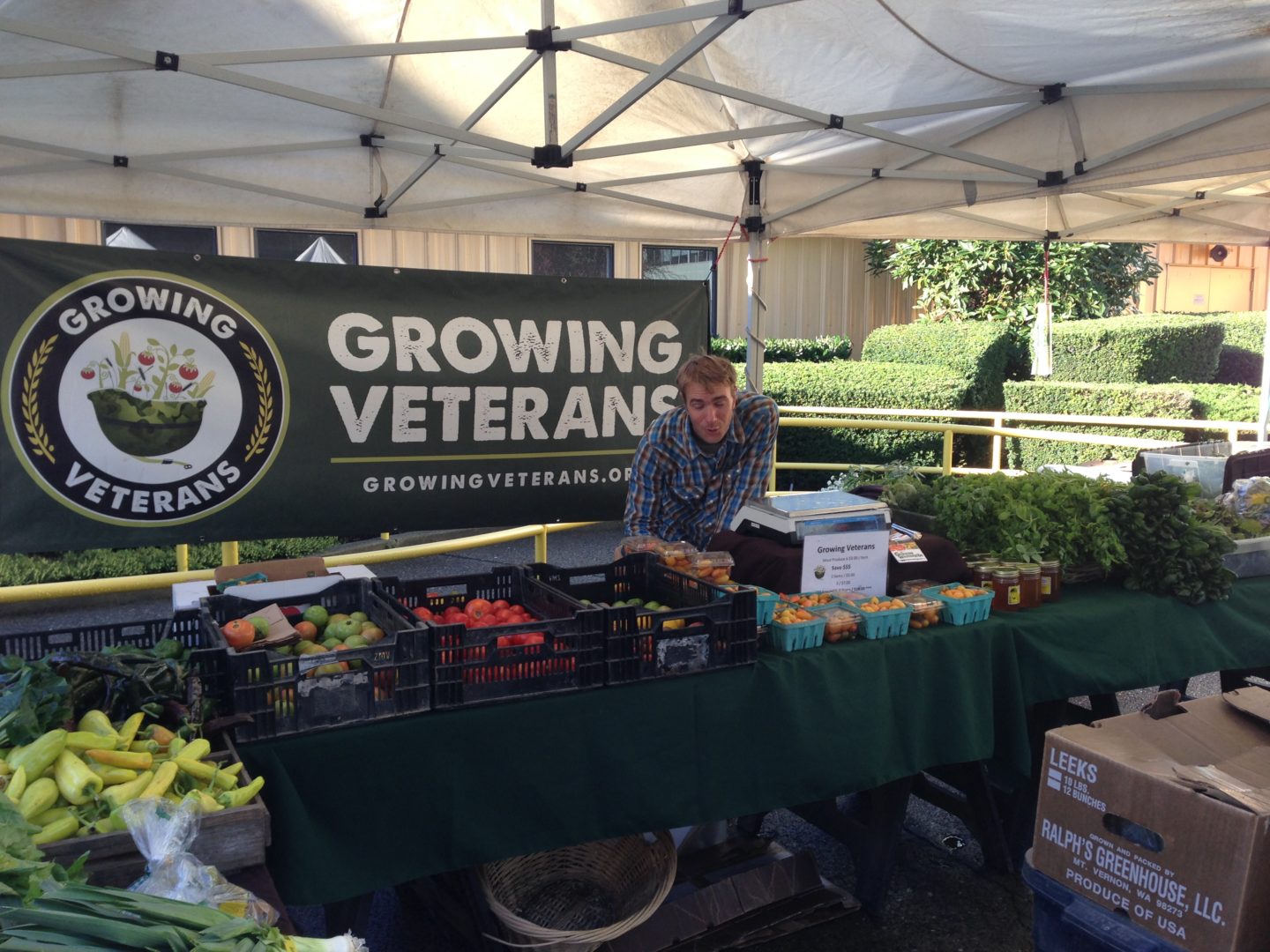
“In any community, if people had a real passion for working with veterans and working with farming, they could do it. We’ve made it happen. We’ve gone from an idea to three functioning farms in four years.”
– Chris Wolf
How It Began
Growing Veterans began in 2012 with a mission “to empower military veterans to grow food, communities, and each other.” The path towards empowerment involved combining two societal goals: veteran reintegration and sustainable agriculture. Civilian volunteers and veterans work alongside each other to grow organic produce to sell at the VA Puget Sound Medical System’s Seattle Hospital farmers market. In 2016, 350 members consisting of veterans and community volunteers grew 45,650 pounds of food.
How Leasing Helped Farmers Access Land For Three Functioning Farms
Growing Veterans currently farms in three different locations in Washington State – Whatcom County Farm, Skagit County Farm, and Auburn Farm.
The organization began its operation on a three-acre farm that had fallen out of production, now known as the Whatcom County Farm. Growing Veterans initially rented this entire farm on a year-to-year basis for $250 per month. Chris Wolf, Growing Veterans’ Farm Manager, says that starting small was key to the group’s success and that three acres was plenty of space to start growing vegetables.
After farming at the Whatcom County Farm location for a couple of years, Chris learned through word of mouth about the availability of a larger, 40-acre farm with three houses, greenhouses, and a barn. Growing Veterans negotiated a year-to-year lease on what is now the Skagit County Farm, paying rent at a rate of $2,500 per month. Recently, building on Growing Veterans’ success on the farm in the first few years, and with the help of a supportive landlord, Growing Veterans negotiated a two-year lease with an option to buy the Skagit County Farm property.
Additionally, the organization recently expanded to a third location – the Auburn Farm. Growing Veterans leases land at this location from another nonprofit organization, Seattle Tilth. Growing Veterans negotiated a deal to pay the Auburn Farm rent with product; the organization trades 20 percent of the vegetables it grows in exchange for staying on the land. The remainder of Growing Veterans’ crop on Auburn Farm is either sold or donated.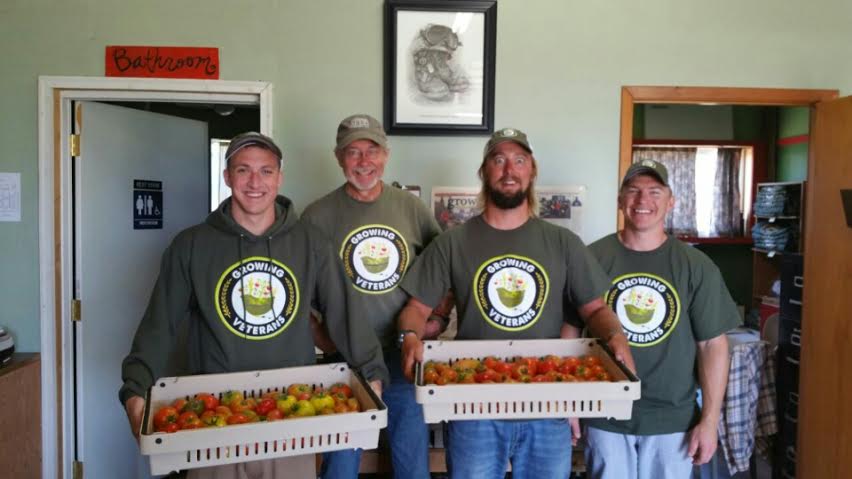
How Having Nonprofit Status Helped Farmers Access Land
Chris says that structuring Growing Veterans as a nonprofit organization was a great deal of work, but it allowed the group to seek grant funding to gain access to land. Growing Veterans started under the fiscal umbrella of another farming nonprofit organization called Growing Washington. Growing Veterans had a fiscal sponsorship agreement that allowed it to split off from the umbrella nonprofit after two years.
Being a nonprofit involves having a board of directors, tracking finances, and reporting to the federal government, among other things. Chris feels fortunate to have an attorney on the board of directors who negotiated the leases and submitted the 501(c)3 nonprofit application.
Thanks to its nonprofit status, Growing Veterans recently obtained a $50,000 grant and has two years to raise matching funds. If the group can successfully raise the money, it will be able to purchase the 40-acre Skagit County Farm and secure stable land tenure at that location.
Hopes For The Future
When asked whether the Growing Veterans model is one that could be replicated in other parts of the country, Chris responds enthusiastically, “Absolutely, absolutely! In any community, if people had a real passion for working with veterans and working with farming, they could do it. We’ve made it happen. We’ve gone from an idea to three functioning farms in four years.” She believes that starting a farm located close to a Navy or Air Force base in an area where veterans live would allow for the successful replication of the Growing Veterans model.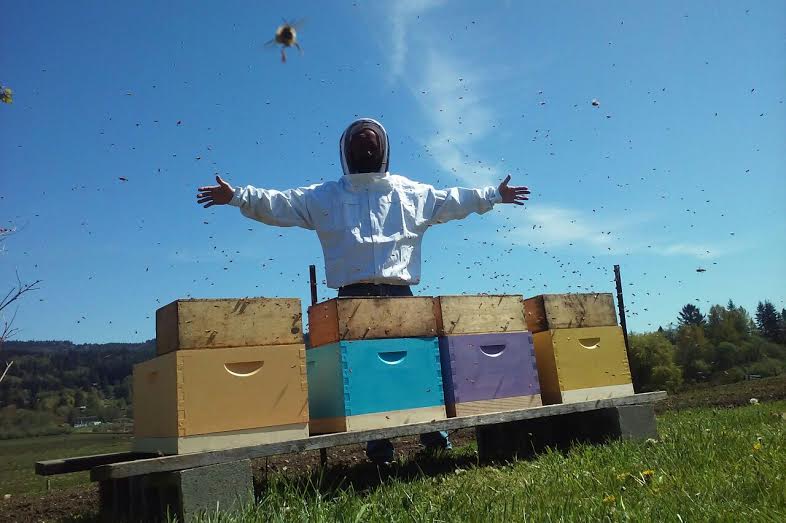
Growing Veterans has also created a curriculum for a Peer Support Training program and is working to host trainings for its members and other veteran nonprofit organizations. The group’s long-term goal is not limited to just creating a culture of peer support within its own organization, “but also to motivate change that might influence the greater culture of the United States.” Its vision for the future is to “end the isolation that leads to suicide and make sustainable agriculture the norm,” one veteran, one vegetable at a time.
